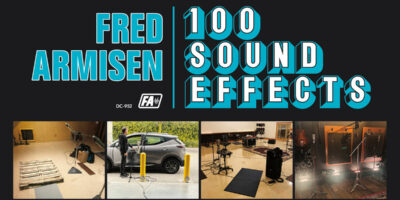Genre: Industrial Hip Hop
Favorite Tracks: “Nothing Is Safe,” “La Mala Ordina,” “Run For Your Life,” “Blood of the Fang”
TW: The album in focus of this review deals very openly and intimately with topics of an often extremely violent and graphic nature. This review will do the same.
A central tenet of postmodernist thought, the members of California experimental hip hop trio clipping. have never been afraid to explore in their music the concept of the body as more than just a utilitarian collection of biological cogs that keep us thinking and breathing from day to day. Even a cursory look through the group’s discography reveals a dedicated and morbid fascination with the body as an epicenter of knowledge, truth, purpose, and power; how a human body can be altered, corrupted, or destroyed, so too can these vaunted concepts that we all too often think of as ideal or infallible. A great example of this can be found on the group’s 2014 debut album, CLPPNG. The true opener of that record, “Body & Blood,” is a gruesome and throbbing track about a sort of siren serial killer, an exceedingly attractive woman who seduces men at clubs and brings them home only to drug and methodically dismember them. The song depicts a woman’s reclamation of power from those who would otherwise only objectify her, in this case by literally tearing them limb-from-limb.
There is perhaps no purer expression of individual power than autonomy over a human body, whether it be over one’s own or over someone else’s. This understanding of the body as not just a vessel for the mind and soul, but as the sole instrument through which we are able to exert our power, or have power exerted upon us, lies at the very foundation of clipping.’s newest record, THERE EXISTED AN ADDICTION TO BLOOD. Frontman and rapper Daveed Diggs explores a wide assortment of contemporary social ills on this album. Using themes of murder, torture, drug abuse, and much more, his lyrics are unsparing and often graphic, leaving little to the imagination as the subjects of his songs are captured, maimed, tormented, and killed in the service of his starkly political subtext. This is clear from the jump as the record gets truly underway with the track “Nothing Is Safe.” Sitting atop a beat clearly inspired by John Carpenter’s classic horror movie soundtracks, the song details a gruesome scene of a trap house being surrounded and then attacked by law enforcement, every person inside being killed in the process.
It is on “Nothing Is Safe” that the album’s central lyrical themes are established, most notably a recurring insertion of police into the role of the nameless, faceless killer—a classic horror movie trope that Diggs twists into an expression of unfettered political power and oppression. “He Dead” follows a similar thematic path, with Diggs interpolating Kendrick Lamar’s “Rigamortis” into something altogether more literal. Depicting a victim on the run from another group of monstrous hunters, again easily interpreted to be police, Diggs and featured vocalist Ed Balloon make the message perfectly clear:
Protect your body / They want to take your body
They want to hurt your body / And put it in a coffin
‘Cause they don’t think you matter, oh no / They want to take your power, oh no
And make you even lesser, oh no / And add you to the number
The first of many songs on the record entirely devoid of drums, Diggs and Balloon are supported only by haunting synthetic drones, a suitably unsettling backdrop for a genuinely harrowing scene.
“La Mala Ordina,” featuring Elcamino and Benny the Butcher, introduces hardcore themes to the record, but clipping. clearly has no interest in glorifying the lifestyle. The track highlights the hideous underbelly thereof, as the song starts by running down “stolen valor” rappers before eventually culminating in one of those rappers being tortured and killed by the same criminals they were pretending to be. Diggs’ closing verse goes into grave detail on the methods by which this murder is occurring, but as his subject nears death, his verse is consumed by a wall of harsh noise that completely eclipses the last two minutes of the song. “Club Down” features a similar theme and a “beat” composed entirely of low bass drones and human screams processed through various filters, as Diggs lyrically tackles the dark side of gang culture once again, detailing scenes of crippling drug addiction with a sick precision.
One of the most musically creative songs on the album is “Run For Your Life,” featuring a show-stealing gory guest verse from Memphis rapper La Chat and a backdrop of almost nothing but ambient street noise—heavy breathing, dogs barking, rattling subway grates. Occasionally the sound of a passing vehicle enters the mix, bringing with it a brief snippet of drums that rhythmically matches Diggs’ flow, before continuing to drive off into the night and taking the beat with it. It’s unlike any other hip hop song in recent memory, showcasing a fascinating approach to production that helps to create an incredibly tense and anxious atmosphere, as Diggs tells the story of a doomed man on the run from a murderous woman looking for revenge. This theme of women as killers and destroyers is nothing new for clipping., but where many horrorcore acts would use the deranged female killer as a symbol of misogyny, Diggs clearly intends it as a symbol of righteous strength. The victim of “Run For Your Life” has legitimately wronged the woman pursuing him by stealing from her, and the victims of the murderous Cynthia in the song “Story 7” are objectifiers, men who view and use her as nothing more than a disposable sexual tool. The punishment for all of these transgressions is simply equivalent to the same unjust excessive consequences that women and people of color have faced for minor infractions for centuries, which finally brings me to the album’s thematic centerpiece.
Enter “Blood of the Fang,” one of the more accessible tracks to be found on the record, but also among its most lyrically radical. Based around a sample taken from a Sam Waymon song in the 1973 horror film GANJA & HESS, “Blood of the Fang” recounts the violent history of racism in America and elsewhere, while calling for an end to docility and a forceful reprisal against the resurgent ideals of white supremacy. The song also bangs, with a hard-hitting beat that becomes more rhythmically compelling as the song goes on and a blistering performance from Diggs, who dominates the track with a myriad of impressive flows as he namedrops and quotes black power icons like Angela Davis, Stokely Carmichael, and Malcolm X. In keeping with the primary thesis of the album, “Blood of the Fang” portrays these icons, along with many other prominent black figures, as vampires returning from the grave to wreak bodily revenge upon the authorities that held them down. Once again we see the human body used as an avatar for power both physical and political; these vampires are coming not just to dethrone their oppressors, but literally devour them.
Despite a long trip through a menagerie of experimental and boundary-pushing tracks, THERE EXISTED AN ADDICTION TO BLOOD finds a way to end with a curveball. A “cover” of avant garde composer Annea Lockwood, the 18-minute long “Piano Burning” consists of an audio recording of the burning of an upright piano, essentially an ambient piece with no musical inclination whatsoever. A curious choice to be sure, but one with a clear and profound message; after an entire album of conceptual examination on the human body and the destruction thereof, “Piano Burning” seeks to take the same line of thought that has been used to examine numerous topics thus far and apply it to the music itself. Although music is obviously without physical form or shape, it still cannot exist without first being created through physical means. In the same way that a person cannot speak without speaking, music cannot be played without first being recorded or written. “Piano Burning” demonstrates that the same rules that have applied to people throughout the record also apply to music. The piano stands in as the physical manifestation of the music that has come before, and in burning it, clipping. are sacrificing it, freeing it, and reclaiming its power.
THERE EXISTED AN ADDICTION TO BLOOD is a potent musical statement, a record that blatantly defies convention and refuses to play by any rules other than its own. It is yet another triumph in a discography that does not lack for triumphs, as clipping. successfully navigates a variety of complex and involved topics without surrendering their central thesis or the genuine impact of their songs. It is a challenging record, requiring multiple listens to fully unpack and examine—I doubt I’ve yet managed to totally do so myself. But with their third studio album, clipping. have stuck the landing, scoring not only a conceptual victory, but also further cementing themselves as one of the single most sonically inventive and fearless acts in all of contemporary music.















Comments